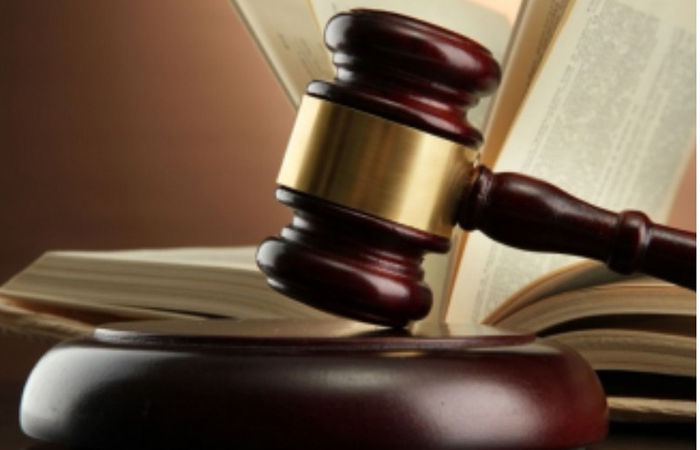
Replace CRPC with BNS, BNSS, BSA: Three new criminal laws have come into force across the country from today. The 51-year-old CrPC will be replaced by the Indian Civil Protection Code. The Indian Penal Code will be replaced by the Indian Judicial Code and the Indian Evidence Act will be replaced by the Indian Evidence Code. Most crimes against women will get higher punishment than before. FIR can also be registered using electronic information. Laws like social service will also be implemented.
Understand what is special in the new law in these 20 points…
1. The new law will not apply to cases registered before July 1, 2024, that is, from investigation to hearing of crimes registered before July 1, 2024, will be governed by the old law.
2. From July 1, FIRs will be registered under the new law and investigation to trial will be completed accordingly.
3. There are a total of 531 sections in the Indian Civil Defence Code. 177 of its provisions have been amended while 14 sections have been removed. Nine new sections and 39 sub-sections have been added. Earlier there were 484 sections in the CrPC.
4. There are a total of 357 articles in the Indian Judicial Code. Till now there were 511 sections in the IPC.
5. There are a total of 170 sections in the Indian Evidence Act. 6 sections have been removed in the new law. New sections 2 and sub-sections 6 have been added. Earlier there were a total of 167 sections in the Indian Evidence Act.
6. The new law also gives importance to audio video i.e. electronic evidence and forensic investigation.
7. Any citizen can lodge a Zero FIR anywhere in case of any crime. The case will be sent to the concerned police station for investigation. For crimes punishable with up to seven years of imprisonment, the evidence in the Zero FIR case will have to be examined by the forensic team.
8. Now FIR can be registered through electronic data as well. E-FIR can be registered even in serious cases like murder, robbery or rape. You can also give information to the police through voice recording. In case of e-FIR, the complainant will have to reach the police station within three days and sign the FIR copy.
9. There is a provision to provide documents related to the FIR and statement to the complainant. If the prosecutor wishes, he can also have the accused interrogated by the police.
10. The chargesheet has to be filed within 90 days of the FIR. The court has to frame charges within 60 days of filing the chargesheet.
11. The verdict will be announced within 30 days of the completion of the hearing of the case. A copy of the verdict will have to be given within 7 days.
12. The police will inform the family of the person taken into custody in writing. The information will have to be given offline and online as well.
13. A total of 36 provisions have been made in the BNS for crimes against women and children. A case of rape will be registered under Section 63. Section 64 provides for a maximum of life imprisonment and a minimum of 10 years imprisonment for the offender.
14. Section 65 prescribes 20 years rigorous imprisonment, life imprisonment and fine for rape of a victim of 16 years or less. In case of gang rape, if the victim is an adult, the offender is punished with life imprisonment.
15. In case of rape of a victim below the age of 12 years, the accused is liable to be punished with a minimum of 20 years imprisonment to life imprisonment or death penalty. The crime of coercion is considered a separate crime from rape, i.e. it is not included in the definition of rape.
16. The victim will be informed about every update related to his case through SMS on his mobile number. The time limit for providing updates has been fixed at 90 days.
17. State governments will no longer be able to unilaterally close cases related to political matters (protests and agitations by party workers). If the complainant is a common citizen, then his permission will have to be taken.
18. There is also a provision for the protection of witnesses. All electronic evidence will be admissible in court just like paper records.
19. Mob lynching also comes under crime. Crimes causing bodily harm come under section 100-146. In case of murder, a case will be registered under section 103. Section 111 provides punishment for organized crime. Section 113 describes the Terror Act. In case of mob lynching, the punishment can be 7 years imprisonment or life imprisonment or death.
20. Sections 169-177 cover election related offences. Sections 303-334 cover matters such as damage to property, theft, robbery and dacoity etc. Defamation is mentioned in Article 356. Article 79 provides for dowry death and Article 84 provides for dowry harassment.
Provision of social service for minor crimes
People caught for minor crimes will have to do community service as punishment. The amended new law includes provisions for social service in cases of attempted suicide, trafficking by public servants, petty theft, public intoxication and defamation. This service gives the offenders a chance to reform, while a prison sentence can make them habitual offenders.
 look news india
look news india
